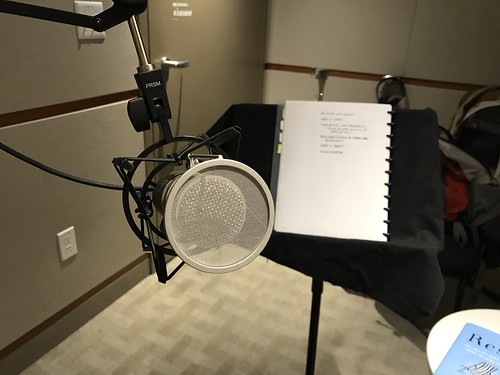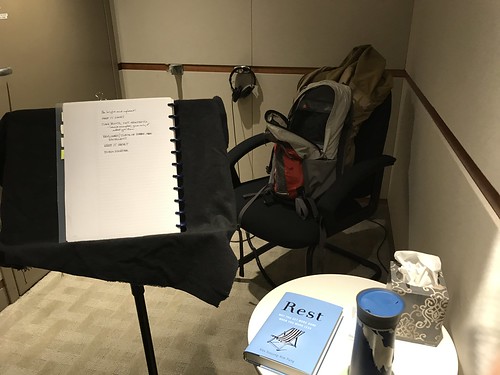Rest officially came out on Tuesday, and in the last several days I’ve been doing lots of press interviews and a few radio spots. Today I’ve got two radio interviews, both at Stanford’s video facility.
The first was with the Joy Cardin Show on Wisconsin Public Radio, and in a couple hours I go back for another interview with THINK, a midday program on KERA in Dallas, Texas.
Radio interviews are interesting craft, and I’m definitely still learning how to do them– but I do feel like I’m getting better. Radio is a medium that doesn’t reward speaking quickly, or giving long, discursive answers to questions; to the contrary, you need to be super-quick, brief, and to the point, without dumbing down your ideas or misrepresenting yourself and your work.
For me, the biggest challenge is being brief, just answering the questions that’s right in front of me, and not jumping immediately to the scientific evidence or historical examples. I love that stuff, and I really enjoys sharing it; but I have to reign it in when I’m on the radio.
Doing a good interview also requires a strong dose of empathetic imagination. You’re sitting in a room that’s windowless, soundproof, and your only companion is a microphone a few inches away from your face. But answering a question well requires imagining the interviewer, and imagining the caller. It’s certainly possible to think of them as just disembodied voices, but I think your answers (my answers) are better if I think of myself as in a conversation, and recognize that I’m actually talking to people.
But like I said, a lot of good performance is craft. Be bright and upbeat. Speak clearly: all those “umms” and “you knows” and “sort ofs” that we naturally use in everyday conversation, and which we easily filter out of conversation with people across the table, are really noticeable on the air.
Keep your answers short. Let the host decide what direction the interview should go: you may have things you want to make sure you say, but they know their audience, and it’s best to follow their cue.
Use turns of phrase or keywords that are memorable and direct people to the book. (I’m going to tell hosts not to try to pronounce my full name, but instead use the short version, and pronounce it in a way that makes it easier to Google; I’ve looked at search terms people use to find my blog after interviews, and I had no idea there were so many ways to spell (or hear) Alex Soojung-Kim Pang!) Having turns of phrase that you can pull out and use is great for keeping a conversation going, and planting and idea in a listener’s mind.
Remember that even though you’ve talked about this a thousand times (and may have thought about it for thousands of days), your audience is hearing it for the first time, so you should speak to people who haven’t heard about the book or you or the argument.
And keep your answers short. Did I already mention that?

